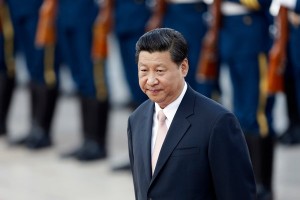The Communist Party has recently held a series of meetings around China, with senior Party leaders issuing warnings in a memo referred to as “Document No. 9”. This document outlines seven key issues that require immediate attention to eradicate “subversive currents coursing through Chinese society”. These include: Western constitutional democracy; promoting universal values of human rights; Western-inspired notions of media independence and civic participation; relaxation of grips to allow for a freer market and “nihilist” criticisms of the party’s past.
“Document No. 9”, which was approved by China’s President Xi Jinping, says that “Western forces hostile to China and dissidents within the country are still constantly infiltrating the ideological sphere.” Xiao Gongqin, a history professor at Shanghai Normal University said, “The…rifts are unusually open and they could widen and bog down Mr. Xi.”
Mr Xi’s hard line has disappointed Chinese liberals and there is speculation that “Document No. 9” has been issued in an attempt to prevent escalation of the growing calls for reform and challenges by liberals impatient for political change, and the perceived threat of Western democratic ideals. The document has not been openly published, but a version has been viewed and verified by the New York Times.
There are some signs of change. Ties between Britain and China had stagnated after British Prime Minister David Cameron met the Dalai Lama last year, but China has now signalled that policy reform is being considered by agreeing to allow BBC reporter John Simpson to conduct interviews and attend the Party Congress. Simpson quoted one dissident figure he interviewed as believing that the next five to seven years will change everything and saying “I would expect to see a popularly elected parliament in that time”.
However, two prominent human rights advocates, Yang Maodong and Cao Shunli, have been detained recently for their involvement in publicly advocating greater transparency and an end to corruption. And the Chinese government’s handling of the Tibetan mining protests, and of the villagers who refused to fly the Chinese flag, serve as a reminder that any apparent policy reforms should be taken with caution.





 Print
Print Email
Email